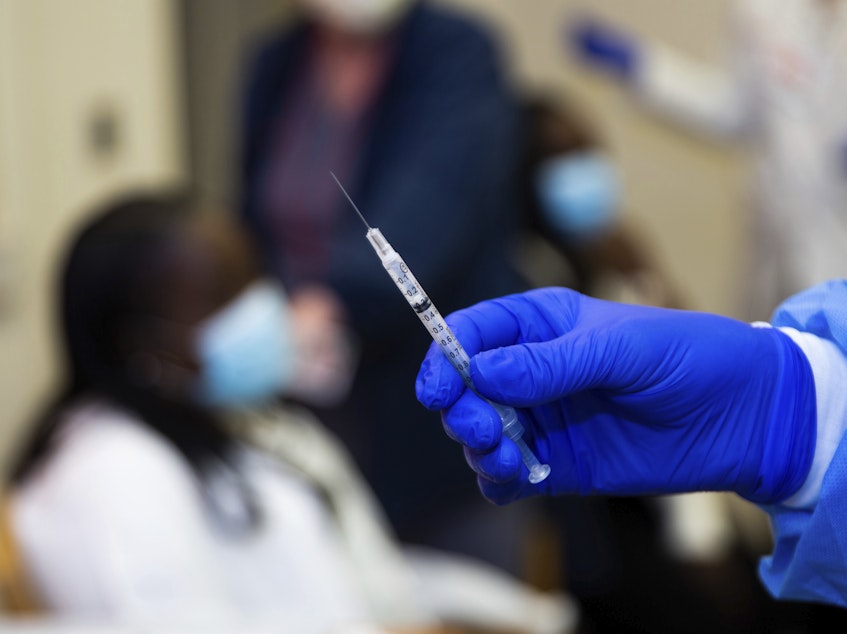Give more people one dose of the coronavirus vaccine for now? Nope, Washington officials say

Think of one dose of the coronavirus vaccine as a mask protecting you against the disease.
And then think of two doses as a hazmat suit — a turbocharge protection.
Scientists are debating whether to vaccinate as many people as possible with the available vaccines — or make sure everyone gets their second dose on the prescribed schedule.
This is because the rollout of the vaccine is going slower than many had hoped. Some experts argue that a way to speed up vaccine distribution and slow down the virus would be to give everyone one dose of the coronavirus vaccine for now and then a second when it’s available — even if that’s not for a few months.
“There is an immediate urgency to covering as many of the vulnerable individuals in our population as soon as possible,” said Dr. Christopher Gill, a vaccine researcher at Boston University’s School of Public Health. “If we can do that through a single dose for the time being with the expectation that we will give the second dose and provide that superior long-lasting immunity later, in the meantime, we can save a lot of lives.”
But Washington state health officials are not considering that. Their plan matches federal guidelines on spacing the doses: Those eligible will get their first shot now and their second shot three to four weeks later.
The first shot introduces your body to the virus, and the second shot gives your body a review lesson on what the virus looks like and how to fight it off.
Two doses prevent between 94 and 95 percent of Covid cases, and almost no one gets severely ill — needing hospitalization, or ventilation — once they’ve had both shots.
Sponsored
Just one dose prevents at least 50 percent of coronavirus infections and might prevent up to 90 percent of infections. We don’t have enough information from the trials to know how well it prevents severe Covid cases.
Some researchers, including two at the University of Washington who published an article on the topic in the Annals of Internal Medicine, argue that it would be a better health strategy to hand out as many first doses as possible. They say it’s like giving everyone in a town a mask — instead of giving half the people in a town a hazmat suit and half the people no protection at all.
Other scientists argue against that approach, because of the uncertainty about how protective the first dose is and how long the protection from the first dose lasts.
Washington’s Department of Health is not considering changing the dosing regimen here; a spokesperson said by email that the department follows federal vaccine guidelines.
At the county level, in King County, the public health department said by email that they can’t institute their own dosing strategy, because they signed an agreement with the CDC not to.
Sponsored
They also said vaccine recommendations should be made at the national level, not the local level, because, at the federal level, advisory bodies of independent experts review the evidence and make recommendations. And, they said, it’s inadvisable to change the dosing schedule because it’s unclear how long the protection from the first dose lasts.




